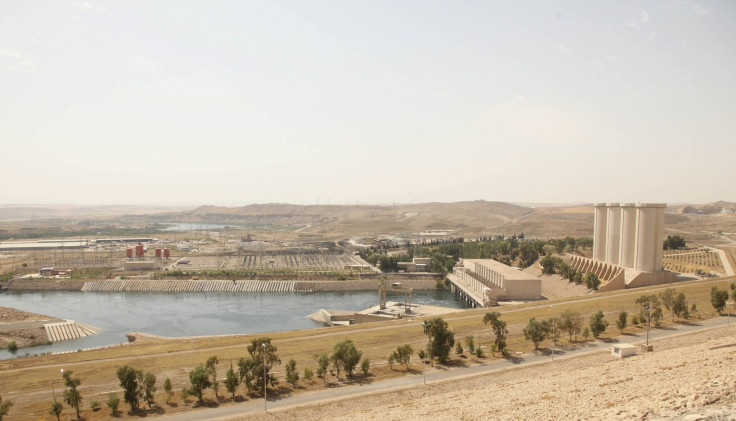Isis Ramadi dam shut: Islamic State cuts water supplies to Iraqi government areas

The Islamic State (Isis) has shut down all the gates of a dam in the recently-seized Iraqi city of Ramadi causing widespread concerns of an impending humanitarian crisis.
Anbar provincial council chief Sabah Karhout told AFP that the IS move lowered the level of the Euphrates River and cut water supplies to government-held areas of Khaldiyah and Habbaniyah to the east.
A leader in the local anti-IS Sunni tribe lf Albu Fahad, Sheikh Rafa al-Fahdawi, said that cutting water to those areas "will lead to a major humanitarian crisis" in the region.
Aoun Dhiyab, a former head of the Iraqi water resources department, said IS aims at reducing the level of water to exploit it for military purposes.
"When the water level is reduced, it allows them to infiltrate from Ramadi to Khaldiyah and then easily move to other areas," he said.
The fall of Ramadi sparked severe criticism from the US, which has been arming and training Iraqi forces, also backing them against the radical Islamic group with air strikes.
Iraq Prime Minister Haider al-Abadi has pledged to take the Anbar provincial capital back from the jihadists within days. However, the Iraqi army's counter-offensive has stalled on the city's outskirts.
Since the start of their campaign in June 2014, the jihadists have sought to consolidate the victories by grabbing strategic assets in the northern part of Iraq. They waged battles for the country's biggest oil refineries.
But their most valuable price was the Mosul Dam, Iraq's largest dam which provides electricity and water to Mosul's 1.7 million residents.
The dam's capacity to flood vast plains of the country garnered much media attention: Mosul could have been engulfed by a massive wave within a matter of hours. Even the capital Baghdad was at danger of being flooded.
For this reason, Kurdish peshmerga forces supported by Iraqi troops and US-led coalition airstrikes launched an attack to recapture the site. On 19 August, the battle ended with a decisive Kurdish-Iraqi victory. US president Barack Obama called the military move a "major step forward" in the fight against the jihadist group.
Last year, Iraqi forces backed by US airstrikes also pushed IS away from another strategic dam, the Haditha Dam, located on the Euphrates river. Energy experts interviewed by IBTimes UK agreed that releasing water from that dam could have flooded wide regions of the country.
"Isis already uses water as a weapon. It has previously stopped the water flow and dried the river course from Fallujah and downstream," an expert on Iraqi energy told IBTimes UK.
"All the cities to the south of Haditha and on the course of the Euphrates," could potentially be flooded, if Isis were to release water from the dam in a worst case scenario. "The wave might reach regions of Baghdad, as Iraq, especially in southern parts, is a very plain country", the expert said.
© Copyright IBTimes 2025. All rights reserved.






















